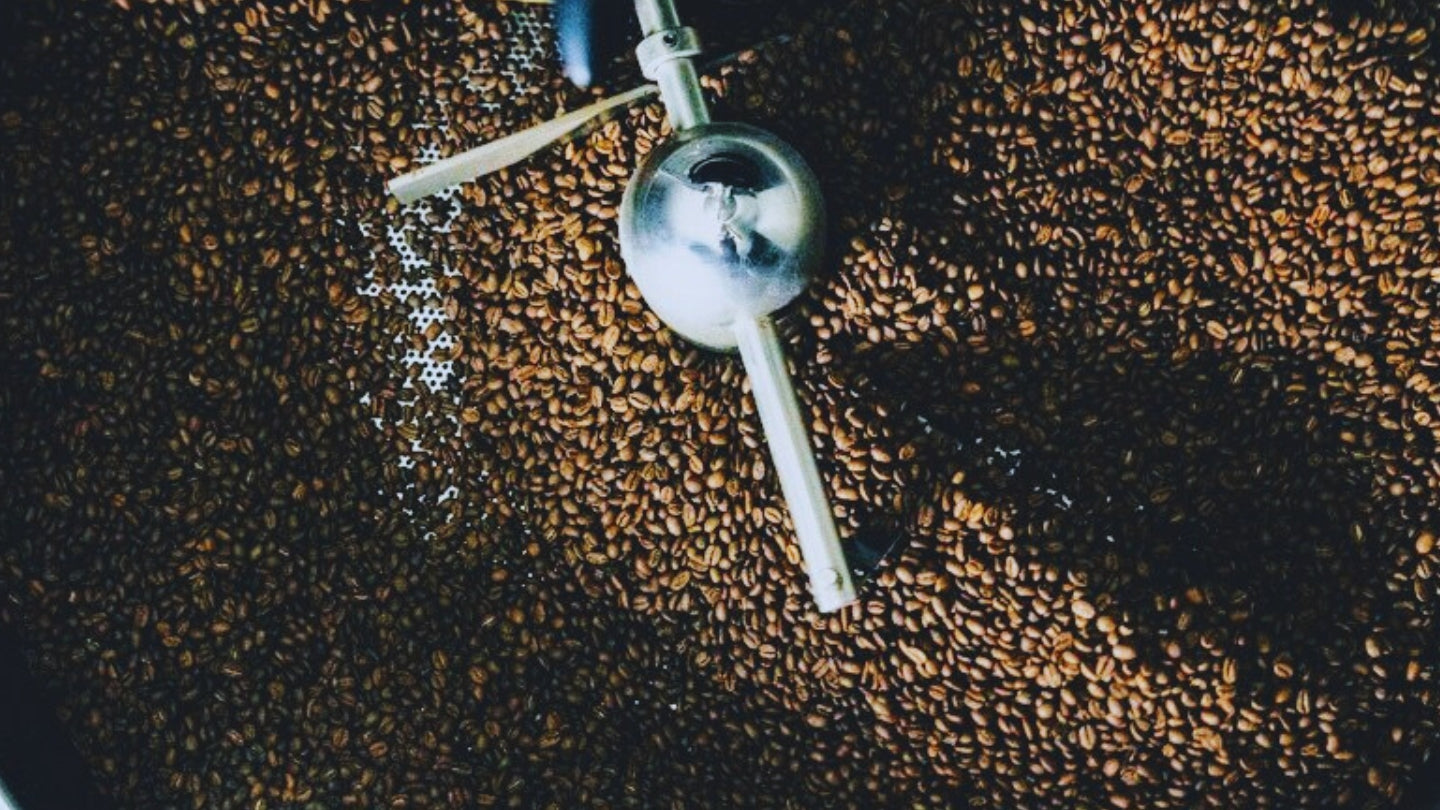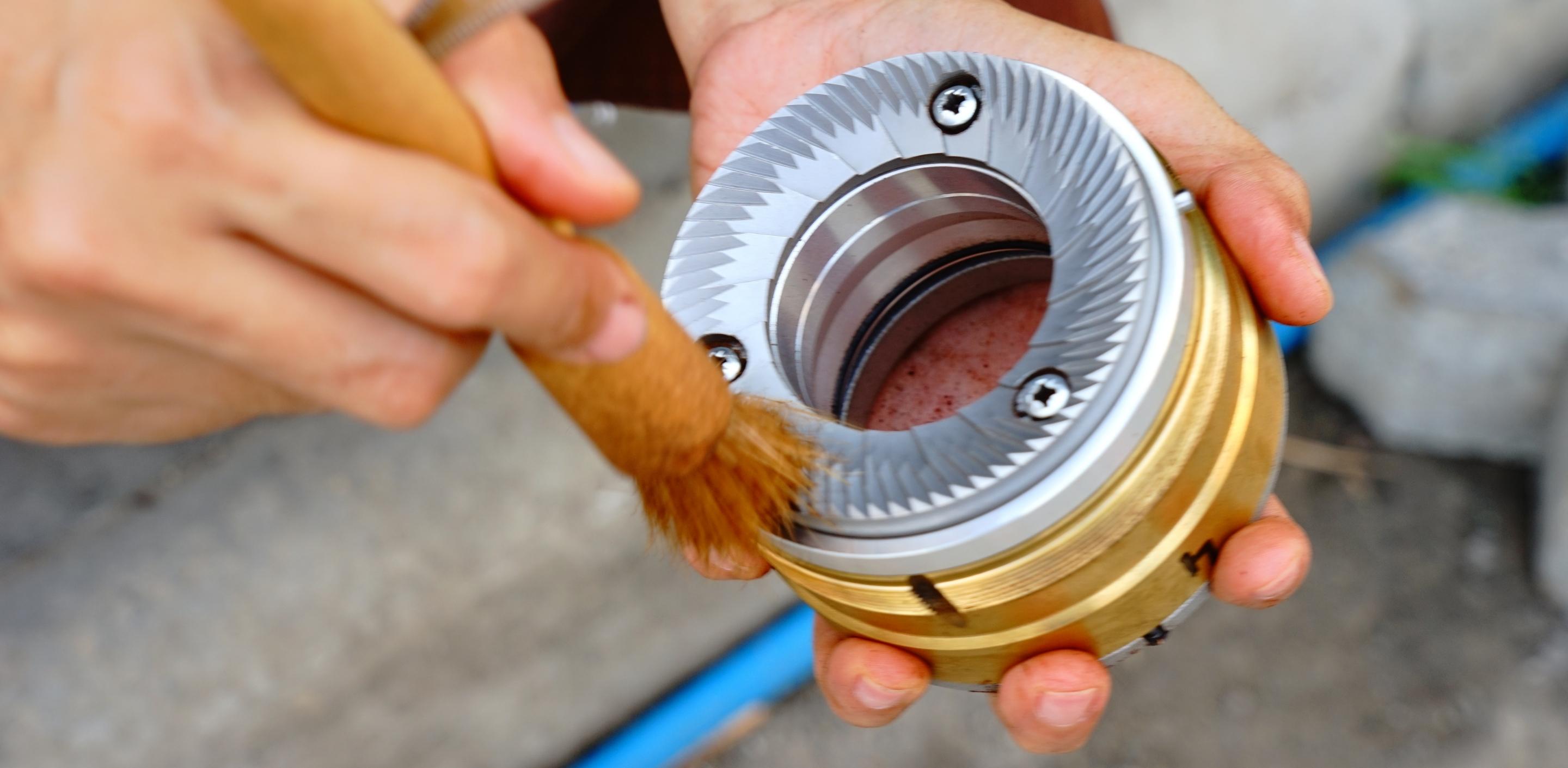Exposing the Unpleasant Truths about Specialty Coffee

If you’ve watched any kind of advertising in the last decade or so, you would have encountered a great deal of material encouraging you to waste less, recycle more, choose locally made or manufactured products and overall just live in a more sustainable fashion. It’s no secret that a great deal of the modern conveniences that we enjoy in western society come at a cost - but very frequently we as consumers are woefully ignorant of what that cost entails for others.
In the western world, companies are in competition with each other, and in the pursuit of maximising profits they frequently push their products to be produced at the lowest possible cost. We’ve all experienced the practical results of this - products being produced with cheaper materials, being made poorly and breaking easily. Most of us would have also heard horror stories of companies utilising cheap, foreign, sometimes even slave labour to produce products or tales of such companies subjecting their employees to unethical working conditions.
Sustainability and Growth
But ethical and quality concerns aren’t the only problem with our capitalist dynamic. One of the buzzwords of the modern era is “Sustainability”, which is the idea of having as little permanent negative impact on the world as possible, and ideally, none at all. Being sustainable means many things, including caring for your employees’ wellbeing, physically, mentally, and emotionally. It means refraining from destroying natural resources such as rainforests. It means utilising renewable energy to cut down on carbon emissions, and it means ensuring that your business practices are future-proof and able to continue indefinitely.
Coffee consumption is on the rise the world over, and this makes sustainability a massive concern in the coffee world. While Covid restrictions have meant countries such as Australia, New Zealand and the US saw consumption fall by 15-20% in 2020, the trend over the previous several years was unambiguously upwards, as much as 10% growth in consumer numbers each year. As of writing this article, coffee consumption in Queensland is up from numbers in 2019, and looks set to continue its rise.
But growth is good right? Well, in our capitalist society, we may have little chance of reaching retirement age without it, so kind of. It’s not bad in and of itself, but as mentioned above, it often comes at a cost. In the coffee world, the cost of industry growth is borne primarily by the primary producers - the farmers.

The pink-shaded area represents coffee growing regions.
Coffee farmers are often not in a great position. Most coffee growing happens equatorially, somewhere between the tropics of Cancer and Capricorn. Typically this means it is happening in African, South-east Asian, Middle Eastern or South American countries - mostly developing countries with cheap labour and little economic power. Almost nothing is grown in the economic powerhouses of North America and Europe. Relatively little is grown in Australia, as the labour cost of doing so pushes Australian grown coffee into prohibitively expensive sale prices for the market.
Commodity Coffee and Growers
As coffee consumption grows, coffee roasters and suppliers - particularly chain stores such as Starbucks, which represents 40% of all coffee stores in the US - get bigger, and their buying power in the market grows. The larger their purchases of coffee, the greater their purchasing power, and the lower a price they can demand for the raw product. Exacerbating this issue is the concept of commodity coffee, which is a term for generic coffee that is traded internationally on the stock exchange. Commodity coffee offers no distinguishing flavour characteristics; the only feature of interest to purchasers of commodity coffee is its price - the lower the better.
As mills and cooperatives are driven to supply coffee beans for a lower price in order to ensure that they can sell their product, they are in turn pressured to pay less to the small farmers that make up the supply chain. Small coffee growers are beholden to the mills that process the green coffee beans and ready them for export, as they have no ability to do this on their own. The mills are thus forced to exert control over the price at which they buy coffee from farmers.
There are approximately 25 million small coffee farmers around the world in such a situation. These farms are too small and too poor to produce a unique specialty crop, and the owners are often unable and usually unwilling to take the risk of dealing directly with a first world purchaser. Even if the communication issues can be surmounted, a contractual guarantee that their beans will be purchased by a foreign company for a reasonable return is hard to weigh up against the small but guaranteed profit that they can make by supplying to a local mill. If a foreign partner reneges on a deal, or decides to change suppliers the next season, the farmers are left with very few options to sell their beans. While mills have a lot of power in the coffee growing industry, and they might sound like they’re the problem, they also protect their growers by providing a reliable means of selling their crops. Mills provide the interface for the developed world to interact with the coffee growing world, a feat which small, independent growers cannot achieve on their own. The best mills support their communities with social and economic programs such as caring for abused women or providing for disadvantaged people in need.
In many countries, farming coffee this way, as an independent grower, is becoming an unsustainable practice as labour costs continue to increase but the value of a crop stagnates or diminishes. In Rwanda the coffee industry is in crisis for this very reason. The labour force is dominated by older workers who often have no alternative option, while the younger generation eschews farming coffee to move to urban regions and pursue more lucrative ventures. In a matter of years, the Rwandan coffee industry could see many farms in this situation bought out by international interests as they become financially unsustainable to their local owners. This is just one example of how coffee being treated as a commodity results in unsustainable situations for producers.
The Specialty Coffee movement
Specialty coffee, the generally touted alternative to commodity coffee, is coffee that should be pushing the industry towards higher quality rather than lower cost. The broadest definition of specialty coffee is anything that scores over 80 on the 100-point Coffee Review scale (a measurement of coffee quality based on sensory attributes [1]), as determined by specialist tasters. Specialty coffee is typically perceived as ‘gourmet’, a cut above what you would get from a supermarket, and representing quality.
A more nuanced definition, as espoused by the Specialty Coffee Association of America (SCA), is one that includes the following [5]:
- The coffee is farmed and produced sustainably
- The coffee is harvested and processed according to quality standards
- The coffee is roasted to quality standards by skilled professionals
- The coffee is made by professional baristas
- The coffee is selected by informed consumers
As with any endeavour that prides itself on quality, meeting these standards represents a higher cost of production than that undertaken for commodity coffee. Farmers producing high-scoring specialty coffee necessarily undertake far more rigorous quality control methods, including hand-picking only particularly ripe cherries, carrying out soil quality and moisture tests, and using scientific instruments to measure compounds in the beans. High grade specialty beans are frequently hand sorted, with obviously defective beans being removed.
In Australia particularly, the specialty coffee scene is booming, and specialty coffee is considered mainstream. The specialty coffee market in the US constitutes over 50% of all coffee sold, across some 35,000 cafes. The Australian scene in comparison, boasts over 20,000 cafes, almost all of which sell specialty coffee, 95% of which are independently owned, in a country one thirteenth the size [3][4]. That’s a comparatively huge proportion of the market, and represents a massive amount of operators with the ability to freely choose their products. Surely such numbers mean Australia is doing right by the primary producers then? Alas, there’s another side to the story.
Changing definitions of "Specialty"
While the generally accepted ‘definition’ of Specialty coffee is coffee that receives a score of 80+, Coffee Review, which invented the classification system, now describes specialty coffee scoring between 80-85 as not even meeting acceptable criteria. 85-86 points is actually the barest minimum for considering a coffee ‘acceptable but nothing exceptional’ [1]. Furthermore, once we begin looking at the economic dynamics of the various grades of coffee, a rather insidious picture begins to emerge.
According to the December 2020 Coffee Transaction guide [2] produced by Emory University, over the last four years, the price of commodity coffee has declined on average. This price represents the value on average paid for commodity coffee after harvesting, processing and delivery to port, but before further shipping costs. As of writing this article, the value is sitting at a pretty low US$1.10 per pound (AU$3.17 / kg). This amount is a very close approximation of what mills are paid for the green beans, though it can’t pinpoint exactly what the farmers receive after the costs of processing, sorting and transportation to port. Suffice to say, it isn’t much.
But low end specialty coffee doesn't see much of an improvement on this figure. 80 to 82 point (the lowest quality that meets the criterion) specialty coffee met with a median price of only $3.56/kg over the same period, a mere 12% increase over the price of commodity coffee. That’s right, in Australia at least you get to be known as a ‘Specialty’ coffee roaster or ‘Specialty’ cafe for an incredibly affordable 12% increase in the cost of your coffee beans, though most of that additional money won’t make it to the farmers, and at such low prices, the long-term viability of their operations remains unsustainable. Sometimes unknowingly, roasters trade on this technicality to promote themselves as ‘Specialty’ suppliers and generate goodwill with their clients and the public, while simultaneously taking advantage of relatively inexpensive low-grade specialty coffee. Cafes are frequently led to believe that they are supporting a sustainable supply chain by purchasing ‘Specialty’ coffee without being made aware of the finer details.
Still, there is a positive side to the coffee growing situation. As the quality of a specialty coffee crop rises, the sale price of the beans rises dramatically. For example, while the average sale price of 80 to 82 point specialty green over the last 3 years was $3.56/kg, for 86 to 88 point green the price rose by 72% to $6.14/kg. This increase was far more pronounced for coffees produced in limited quantities, with microlot coffees of fewer than 1500kg that scored 88 or above demanding median prices upwards of $11/kg, a more than threefold increase from the least expensive specialty coffee available. In a nutshell, people pay substantially more for better quality coffee.
These higher prices represent a potentially massive increase in profits for the farmers that have the capacity to produce coffee at higher standards; though while it’s great to think that the possibility of a good return on investment is available for producers, the sad reality is that it simply isn’t in a lot of cases. Many small producers simply do not have the financial resources to begin attempting to produce higher quality coffee, and risk putting their livelihoods on the line by trying. Currently, this high-end, high-cost, microlot specialty coffee represents only a very small percentage of the total specialty market. More tellingly, there is not yet a massive demand for ultra-high quality coffee in the 90+ range, partially due to the cost, and partially due to consumer preference.
Ethical Concerns and Consumer Preferences
Small batch and boutique roasters that are concerned with taste and ethical purchasing continue to push for better quality in their green beans, and are prepared to pay for it. But this approach is only viable when consumers have a taste for the high-end coffee. While coffee consumption worldwide surpasses that of all other beverages besides water and tea, individual coffees do not enjoy the same historical significance and heritage as products such as whisky, champagne, or even beer do. Consumers expect to pay premiums for products with pedigrees, a characteristic that coffees certainly can have, but one that consumers are typically disinterested in or unaware of in their purchases.
What we think is the most important consideration with regards to purchasing coffee is that for the most part, it is not a sustainably produced product. While farmers of commodity coffee may be able to continue producing such coffee for the foreseeable future, its negative socio-economic impact on farming communities is already being seen in countries all around the world. Situations like the one in Rwanda are not unique, and as large companies take advantage of these situations to vertically integrate their supply chains, the coffee industry will see more downwards pressure on the commodity coffee price. Low end specialty coffee farmers receive only fractionally more for their crops than those that produce commodity coffee do, frequently leaving them in a similarly precarious financial position - if not a worse one once additional expenses are accounted for.
Looking to the Future
So what should we in the coffee industry be doing about this?
At Bancroft Roasters, what we choose to do is pay more for our coffee beans. Our seasonal retail offerings constitute some of the most high quality specialty coffee available on the market, and we charge a fair price for them. Our wholesale clients pay no more for 85+ grade specialty coffee with us than they would for 80 grade anywhere else. We don’t claim to be supporting the industry by roasting ethically sourced specialty coffee while then still contract roasting low quality coffee that undermines coffee growers' livelihoods. Instead, we strive to ensure that our business processes are as efficient as possible in order to mitigate the higher cost of purchasing sustainably produced coffee beans. We expect our green bean suppliers to pay mills a fair price for raw coffee, and to ensure that the farmers get a return on their crop that allows them to live and grow sustainably. We endeavour to present our conduct transparently and have ourselves be held accountable for our purchasing choices.
As a consumer, you could choose a supplier that uses sustainably produced, direct-trade 85+ grade specialty coffees, and ensure that they provide evidence of such. If you're interested in doing so, a good starting point is to look for suppliers that provide information about the source of their coffee - the more specific, the better. Traceability leads to accountability, and that means a better deal for the growers, and a greater likelihood that the coffee is produced sustainably.
You might expect this to mean you’ll pay more for your daily coffee - but really, that shouldn’t need to happen at all. In fact, coffee prices in the Western world shouldn’t have to change much just because consumers start demanding that coffee roasters use sustainably produced specialty beans. The primary reason large coffee companies buy commodity coffee or low-grade specialty isn’t because they can’t afford quality, sustainably produced specialty coffee, but because they don’t have to. And they never will until there is a demand from consumers for them to change their buying practices. Until then unsustainable coffee production will continue to exist and disadvantage primary producers simply so that large companies can maximise profits.
We’re only a little fish here at Bancroft Roasters, but if we can afford to use a sustainably produced product, we guarantee you that the big guys can too.
[1] https://www.coffeereview.com/how-coffee-review-works/
[2] https://www.transactionguide.coffee/
[3] https://scanews.coffee/2017/11/29/2017-u-s-specialty-coffee-consumption-trends/
[4] https://sca.coffee/availableresearch/
[5] https://sca.coffee/research/what-is-specialty-coffee
[6] https://perfectdailygrind.com/2020/02/why-rwandan-youth-are-turning-away-from-coffee-production/





Preach it my brothers 🙌
Leave a comment